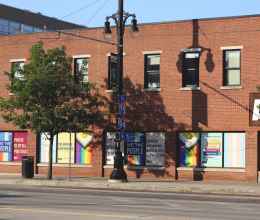There is a famous story about President Franklin D. Roosevelt where in a policy meeting he purportedly said: "Alright Gentlemen, I agree with you, now make me do it."
No one knows for certain if FDR actually spoke those words but the fact this story is so often cited I think illustrates an important truism about politics and social change: Progress does not happen in a vacuum, and politicians do not enact policy just because they think it's a good idea.
There is also an underlying lesson to the FDR story that I think is equally important but easy to miss in a cynical political culture, which is: Meaningful change happens from the bottom up.
Bottom-up change takes movement building. Bottom-up change takes building relationships. Bottom-up change takes building the case for yourself and your community and making it stick.
Last year, when an effort to update Michigan's civil rights protections to include lesbian, gay, bisexual and transgender people broke down, what could have been a devastating defeat for the transgender community in Michigan turned into a big win because of the LGBT community's unified front, locally and nationally.
Never again will a bill to modernize the Elliott-Larsen Civil Rights Act be considered without inclusion of protections for gender identity and gender expression. This victory could not have happened without the voices of the transgender community pushing LGBT leadership for inclusion.
Last week in New York shows an even more striking example of what transgender voices are capable of accomplishing when we are organized and persistent after Gov. Andrew Cuomo announced the first-ever statewide regulations protecting transgender New Yorkers from discrimination.
In 2002, the state passed the Sexual Orientation Nondiscrimination Act with no civil rights protections on the books for transgender people. For 13 years, repeated attempts to pass the GENDA (Gender Expression Non-Discrimination Act) had failed. Yet, because the transgender community in New York consistently and insistently built their community's visibility and political power, when the time was right, they were able to strike and convince Cuomo to protect transgender New Yorkers by extending the coverage to an existing human rights law.
Here in Michigan, it's likely that the transgender community will play one of the key roles in bringing nondiscrimination protections for LGBT folks to the state—in fact, we should insist on playing that role. We can and should do what it takes as a community to accelerate the equality curve for all Michiganders. Here is where initiatives like the Transgender Advocacy Project (TAP) can help. The political process will respond, but we have to make them do it.
Again, progress doesn't happen in a vacuum, we have to make it happen.
